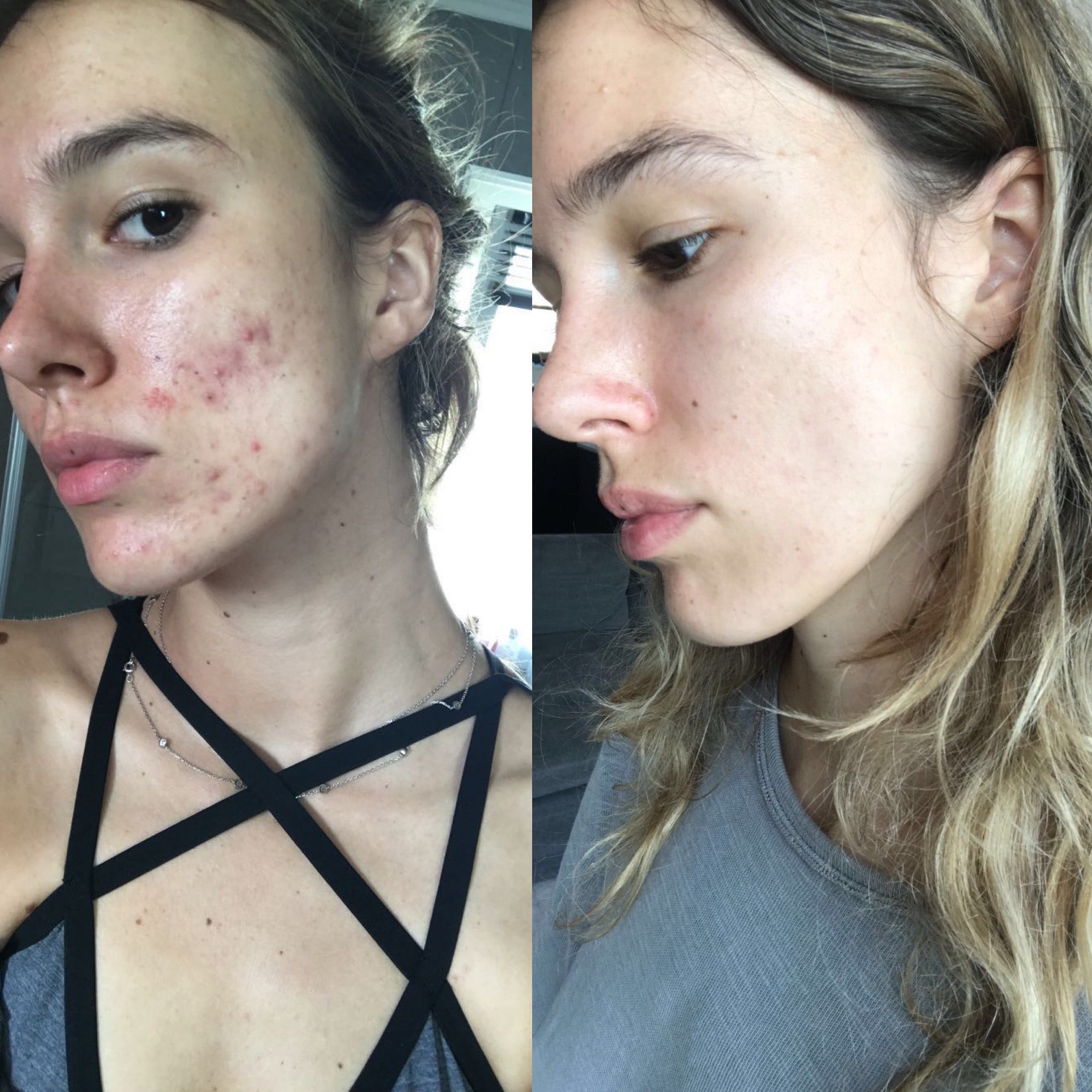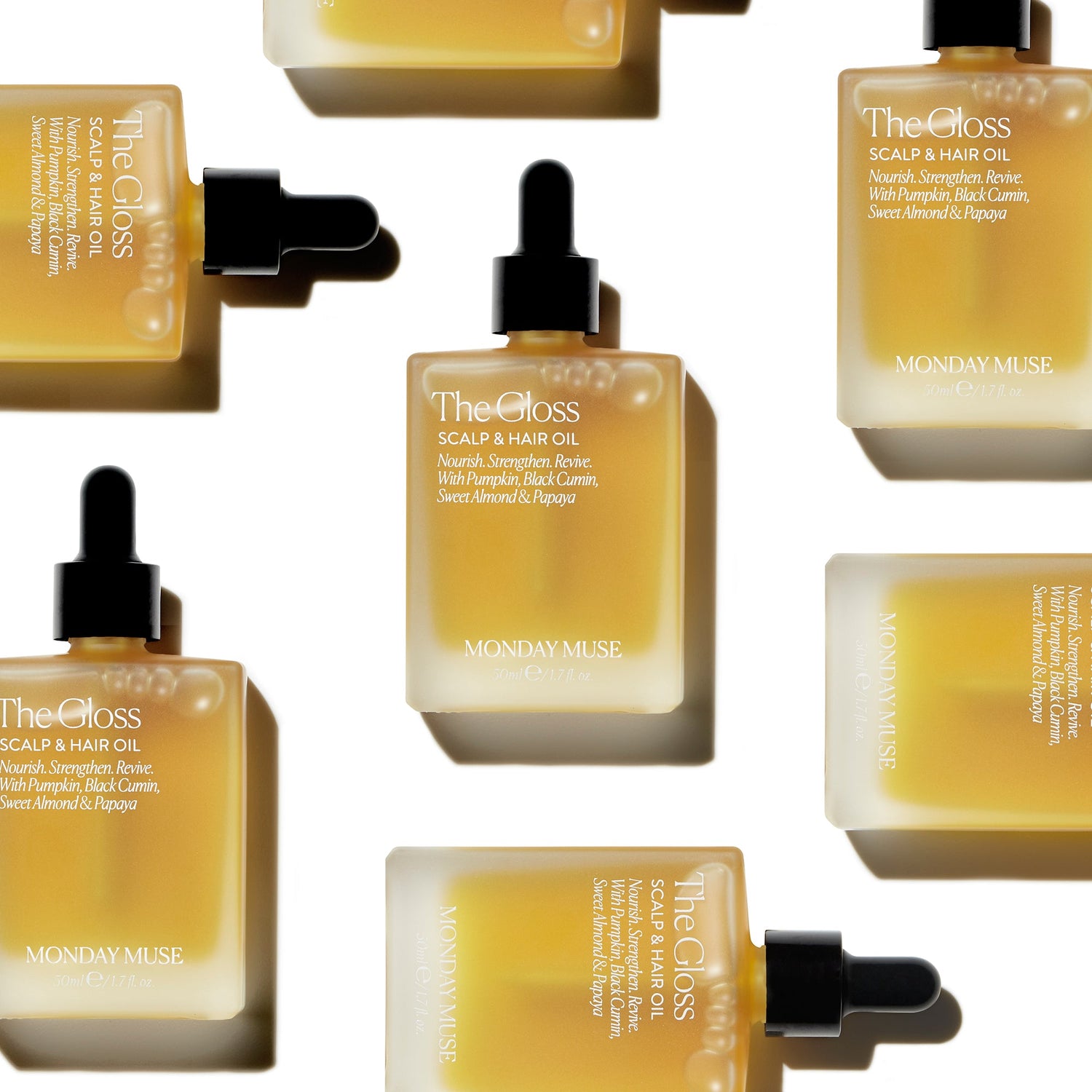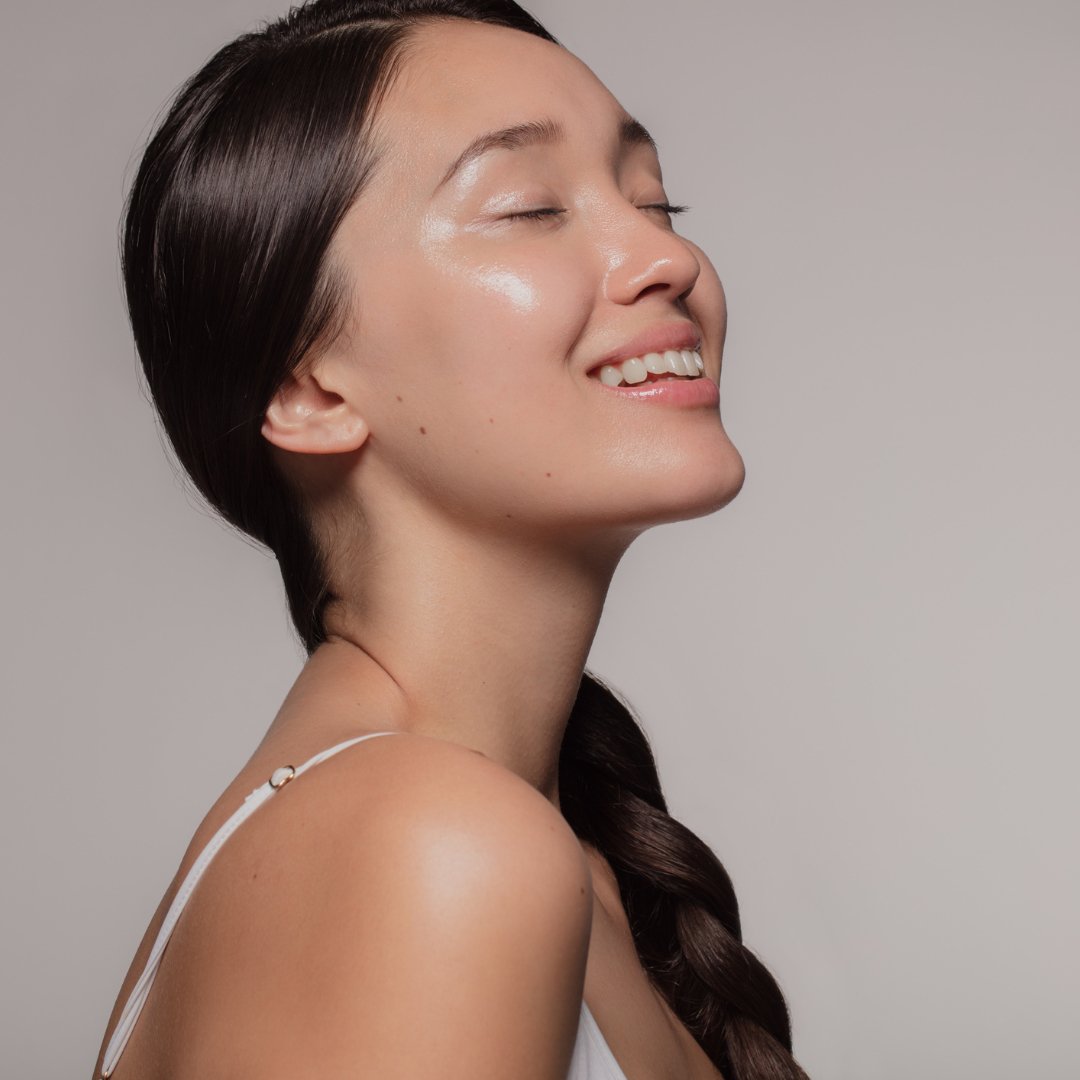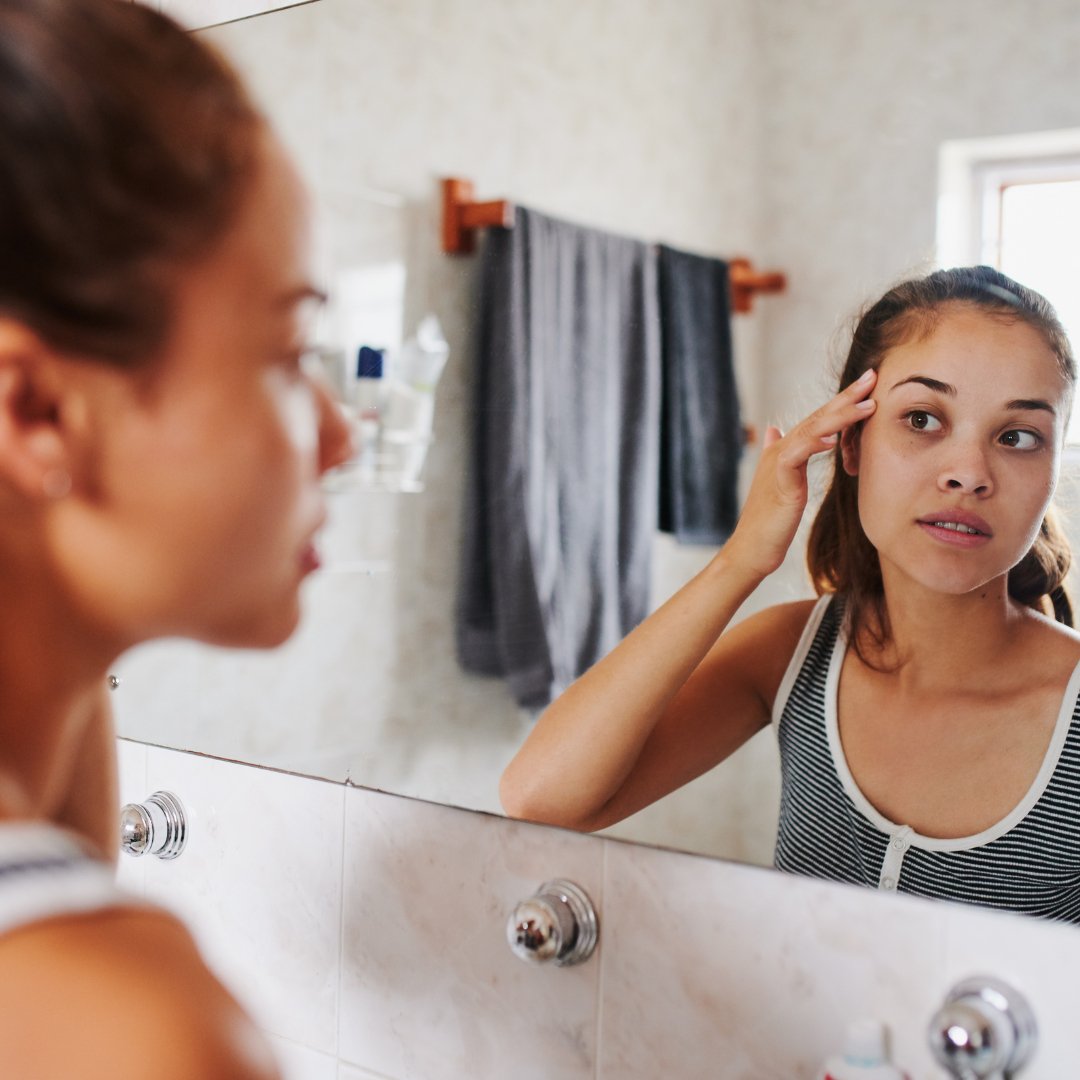My troubled relationship with my skin goes back to when I was a little girl suffering from eczema and other skin conditions. Frequent visits to the dermatologist were part of my childhood. At 14, I started getting acne and so began my first experiments with skincare products. I turned to a brand sold widely in many pharmacies. After a few days of using the products, my skin was inflamed and my face beetroot red. After testing, it became clear I had a sensitivity to fragrance. All through my teenage years, my acne was persistent and I was also diagnosed with mild rosacea.
At 18, my complexion cleared up and I thought I finally had a handle on my skin issues. I was wrong and at 21, my acne came back with a vengeance, this time cystic on my cheeks, small bumps under the skin on my chin.
I headed back to my dermatologist, who prescribed me antibiotics and various creams. I took several courses of different antibiotics over the next few years, but they only ever offered a temporary solution. As soon as I finished a course, my acne would come right back. The topical prescriptions (like Differin Gel) made my skin ultra-sensitive and also didn’t help much.
Basically, I tried every anti-acne product on the market promising me clear skin – strong peels, and other products with high active ingredients – but these only made my skin more inflamed, resulting in perioral dermatitis on top of my stubborn acne. As you can imagine, my frustration level was 10 out of 10.
My skin breakthrough
Then after three and a half years of struggle, I finally found a solution that worked for me – a combination of internal and external factors that resulted in my skin being clear 95 per cent of the time. I still get a few pimples here and there (especially around the time of the month), but I am totally fine with that. I don’t think skin is supposed to look like an Instagram filter – our natural skin is beautiful just as it comes!
So here I want to share what helped me clear up my acne in the hope that this might also help you in your own skincare journey. Please note though that this is my personal experience and you should always seek the help of a doctor or skin expert if your skin is in crisis. I also encourage you to do your own research and see what works best for you.
8 TIPS THAT HELPED CLEAR MY ACNE
1. Consider supplements
After a few years of almost no improvement in my skin, I started looking at alternative ways to clear my acne. I found a naturopath in my hometown of Amsterdam who recommended I take zinc, vitamin A, vitamin B6, magnesium, evening primrose oil and aloe vera juice (which tasted really bad). She told me it would get worse for a month before it got better, and she was right. I was very sceptical, especially that first month, but after 6-8 weeks I noticed a significant improvement. It was a step in the right direction for my skin. Zinc is known to benefit the skin and aloe vera is also a common skin soother, whilst Vitamin A is known as "ingestible retinol".
- Probiotics, probiotics, probiotics
Research suggests there is a direct relationship between our gut health and acne; probiotics are a certain type of friendly bacteria that promote healthy gut flora. They are a supplement that deserve a special mention because boy did they help my skin! I saw a nutritionist who suggested I do a stool test (yikes) to analyse my microbiome and intestinal health. The test results came back showing I was lacking a particular bacteria string and had several bacterial imbalances. My nutritionist told me that taking so many antibiotics over the years had flushed out the bad but also the good bacteria in my system. After taking a strong probiotic (80 billion IU) for three months, I noticed a major difference in my skin, and it was the last push I needed to get rid of most of my acne. If you are like me and have been on a lot of antibiotics over the years, notice a lot of bloating and experience digestive issues, it might be worth doing a stool test and speaking with a doctor about it.
- Less is more when it comes to skincare
When my acne was at its worst, it seemed logical to use anti-acne products that contained active ingredients such as BHAs and AHAs to get rid of my spots. I started using these products in EVERY step in my routine, from my cleanser to my moisturiser. But layering that many active ingredients on my skin had the opposite desired effect. When the skin encounters inflammation like acne, it needs to be treated gently as your skin barrier is damaged and needs to be repaired. Using lots of products with lots of strong ingredients was not good for my complexion. It was actually when I stripped my routine back, using products with repairing and soothing properties, that my skin calmed down. That is not to say that I am opposed to acids or exfoliators, but you have to remember your skin is intelligent and your cell turnover happens every 30 days roughly (depending on your age). This dead skin cell layer is there for a reason, it helps to protect the outside of your skin from external aggressors, which means that you have to find a balance within your own skincare routine. You can give your skin a push in the right direction when you feel there is a build-up of sebum, but don't overdo it. My advice is to take a look at your own regime and carefully analyse the ingredients in the products you use.
- Seek out a skin aesthetician who creates bespoke facials
I decided that seeing a facialist who could extract my pimples carefully would lower the chance of scarring and post-acne pigmentation. I saw a few who weren’t very good, but eventually found one who made a huge difference to my skin and really helped me. She would look at my acne and skin and create a facial especially for me, instead of giving me a general acne facial. This is key! Finding the right aesthetician can really make a big difference to your skin, but again it’s very important to do your research and find someone who can treat your particular concerns and skin type.
- Wash your face with tepid water
For years I washed my face with warm water, until my facialist told me I should use colder or tepid water instead. This is because hot water can strip the skin of natural oils and so lead to acne flares, breakouts and skin irritation. This small change has helped my skin so much! It’s a very easy step to implement into your regime and it really made a big difference to my complexion.
- Watch out for sodium lauryl sulfate (SLS) in cleansers
I used to use a lot of cleansers that contained a surfactant called sodium lauryl sulfate (SLS), which is an ingredient that removes dirt and daily grime, and is also an effective foaming agent. This particular surfactant did not help my skin at all. Rather, it made my skin feel tight and my acne more inflamed. So I switched to mainly gel cleansers and sometimes a balm cleanser without SLS, which worked better for my skin. How you start off your routine is so important, so it’s worth checking ingredients and finding a gentle but effective face wash that doesn’t strip your skin.
- Follow this post-workout tip
I go to the gym frequently and it took me a while to make the link between my acne and working out. But when you think about it, getting sweaty with other people in a small space is a potential recipe for disaster for your skin. Especially if you don’t do much to your skin after your workout. After a gym session, make sure you clean off the dirt from your skin, not necessarily by cleansing – some micellar water on a cotton bud will do. It definitely helped with the small bumps I had on my face and is another simple hack to incorporate into your skincare routine.
- Use products that don’t contain fragrance: this includes essential oils
Since being diagnosed with a fragrance sensitivity by my dermatologist, I’ve had to be careful about which products I use as most contain some kind of fragrance. Fragrance is a well-known skin sensitiser and can cause irritation or reactions in people with normal skin, never mind those with sensitive skin. Even if you don’t experience an immediate reaction, you might develop a sensitivity in the long-term, which is why personally I find it safer to avoid any products containing fragrance completely.
Essential oils or natural fragrant components pose the same risk. I advise reading ingredient labels carefully and familiarising yourself with the names of fragrances – these include orange peel oil, lavender oil, peppermint oil, linalool, citronellol, limonene, geraniol and eugenol among others. Because of all the research about the negative effects fragrance has on the skin (even at a low percentage), I formulate all Monday Muse products without any fragrance at all, just to be on the safe side. I do want to note that everyone’s skin is different and not all skin reacts badly to fragrances. If you would like to read more about fragrance in skincare please click here
I hope this information could be of value to you! If you have any further questions feel free to send a DM on Instagram (@mondaymuse.skin) or email at hello@mondaymuseskin.com.




